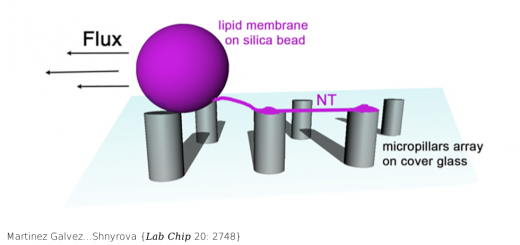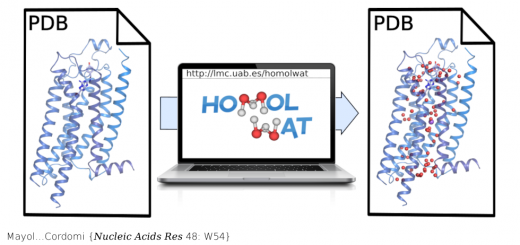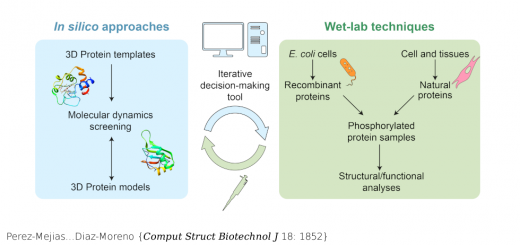Isotope Substitution of Promiscuous Alcohol Dehydrogenase Reveals the Origin of Substrate Preference in the Transition State

An enzyme isotope labeling study based on a combination of experiments and computer simulations has revealed the origin of the substrate preference in a promiscuous enzyme.
Behiry EM, Ruiz-Pernia JJ, Luk L, Tunon I, Moliner V, Allemann RK.
Angew Chem Int Ed Engl 2018 Mar; 57: 3128.
The origin of substrate preference in promiscuous enzymes was investigated by enzyme isotope labelling of the alcohol dehydrogenase from Geobacillus stearothermophilus (BsADH). At physiological temperature, protein dynamic coupling to the reaction coordinate was insignificant. However, the extent of dynamic coupling was highly substrate-dependent at lower temperatures. For benzyl alcohol, an enzyme isotope effect larger than unity was observed, whereas the enzyme isotope effect was close to unity for isopropanol. Frequency motion analysis on the transition states revealed that residues surrounding the active site undergo substantial displacement during catalysis for sterically bulky alcohols. BsADH prefers smaller substrates, which cause less protein friction along the reaction coordinate and reduced frequencies of dynamic recrossing. This hypothesis allows a prediction of the trend of enzyme isotope effects for a wide variety of substrates.
PubMed: 29341402. Doi: 10.1002/anie.201712826.




